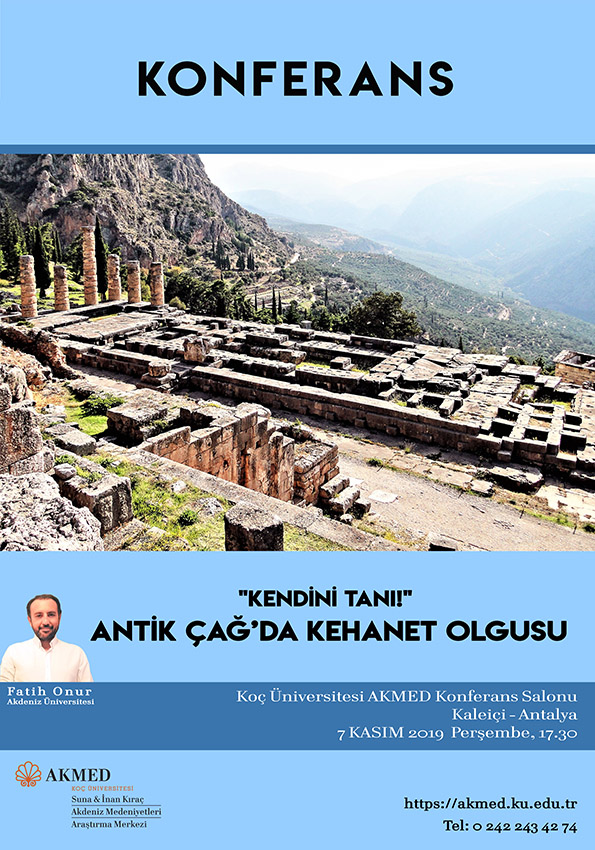“Know thyself!”: The Phenomenon of Oracle in Antiquity – Fatih Onur

START
7 November 2019 – 17:30
END
7 November 2019 – 19:30
“Know thyself!”: The Phenomenon of Oracle in Antiquity
The human’s desire to know has been one of the most important actors in the evolution of humankind, being manifested in practical aims of human survival from the earliest periods. The human’s need for satisfying curiosity was not catered for only through knowledge, which can be obtained through the five senses, but since humans needed to know more for several reasons, they experimented with many methods to discover that which cannot be found through the normal senses, and to understand the mystery or to obtain new about the future. As today, in addition to the several methods of fortune telling and of interpreting omens and dreams, people sought different ways to access the “truth” by trying to get in a direct contact with the gods.
A direct communication with the god was usually undertaken through mediators in oracle centres, although sometimes through personal experiences such as dreams or through methods for seclusion from “the world” (i.e. in caves). In the Ancient Near East, those individuals, who had direct contact with a particular god, without being asked specific questions, spread the revealed divine messages amongst the certain groups of people in the society, a more institutional structure, having different aims is established in the Western World of antiquity. Amongst the many examples, such as oracle centres of Klaros, Didyma and Patara, the location of which is not yet known, of such oracle type, the most renowned was the Temple of Apollo in Delphi. Here Pythia in an ecstatic condition uttered cloudy answers to the questions asked to her. The phrase “know thyself” was inscribed in the front hall of this temple, a maxim ascribed to Chilon of Sparta (7.-6. c. BC), while being valid in many respects in ordinary life, indicated the importance of a consultation made through a consultant, who knew what exactly was needed to be known by the supplicant, and of the correct interpretations of the oracles given.
Oracular centres were prevalent in antiquity. On the one hand they served the supreme rulers such as kings and emperors and provided possible solutions of intractable political problems and state issues, on the other hand they gave answers to small-scale and personal questions. In the Roman period some laws were issued in order to prevent oracle centres from causing local rebellions or lending their influence to unrest against Roman authority. However, it is also clear from the surviving examples of oracles that many consultations, which did not pose any such risk, were ignored by the Roman authorities.
